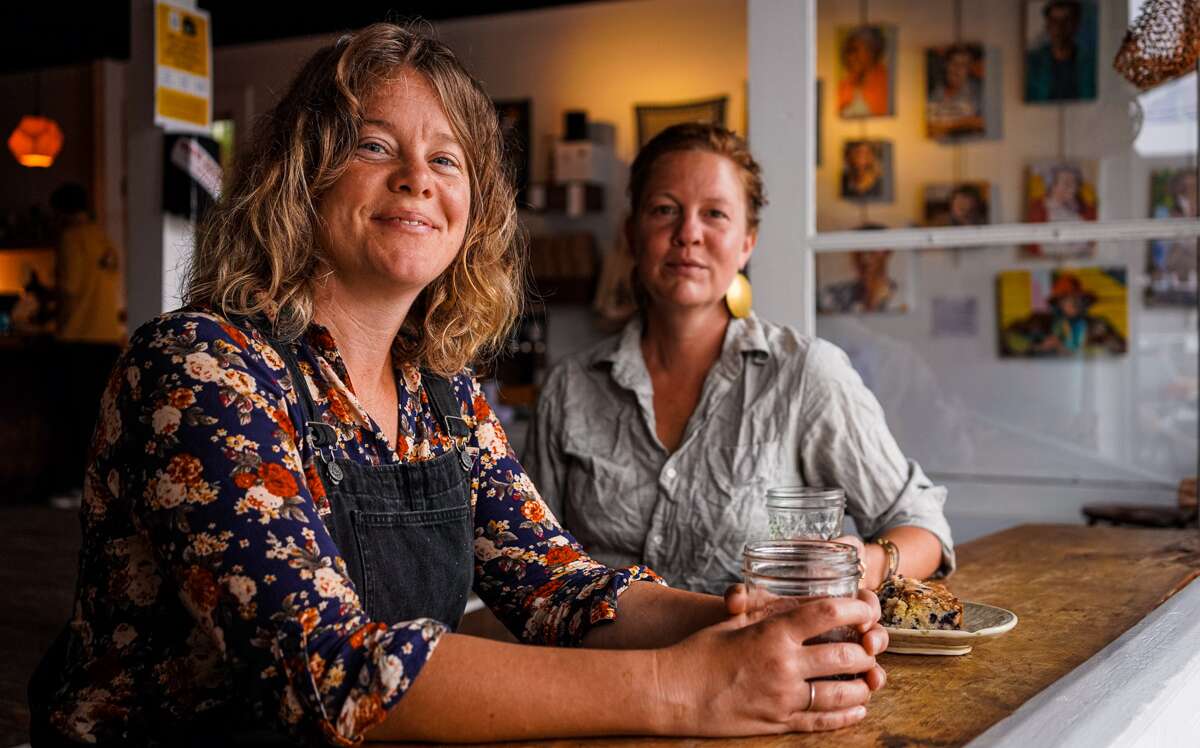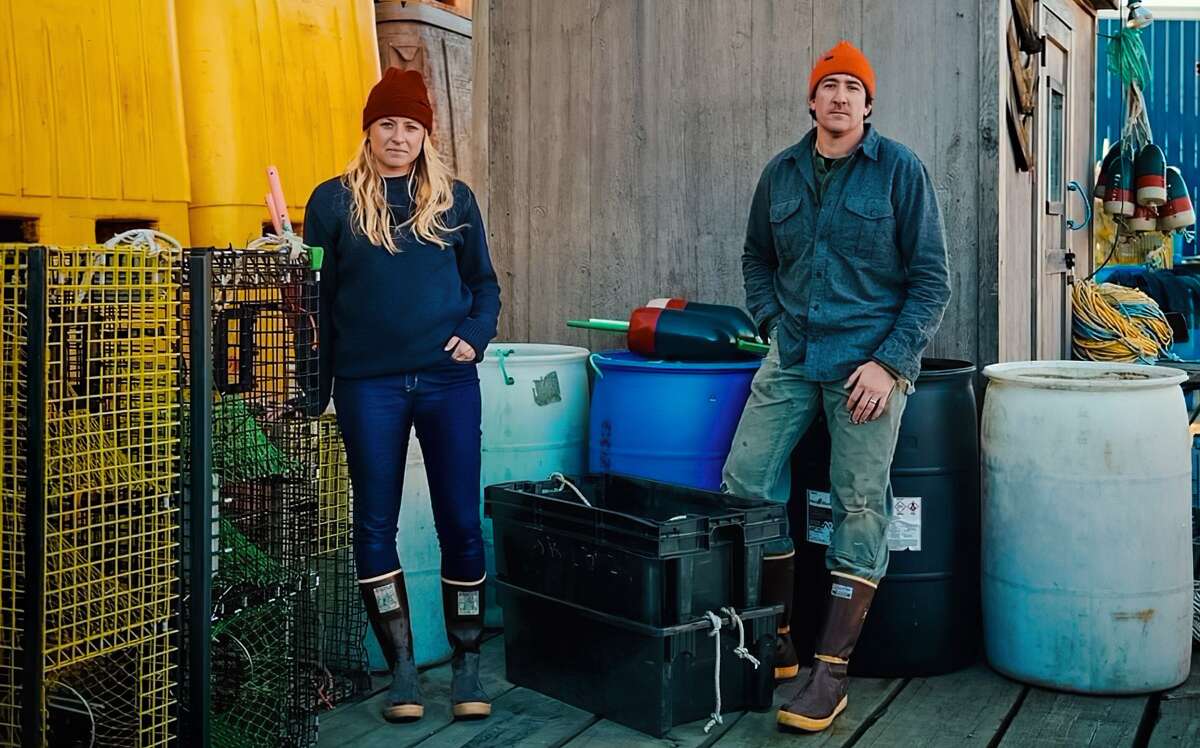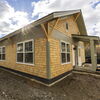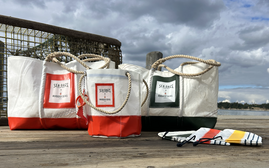
From bikes to bags to coffee, small businesses are doing big things
 Photo / Tim Greenway
Chris Carleton is the owner of Allspeed Cyclery & Snow, which has moved into a larger building in Portland and added a location in Bethel.
Photo / Tim Greenway
Chris Carleton is the owner of Allspeed Cyclery & Snow, which has moved into a larger building in Portland and added a location in Bethel.
A year ago, Chris Carleton was nailing down acquisition and renovation plans for not one but two new locations to accommodate his growing business, Allspeed Cyclery & Snow.
Now his team is in a Portland building that’s three times larger while expanding the customer base with a new store in Bethel. In addition to a third spot, in Carrabassett Valley, Allspeed has significantly more indoor and outdoor space to accommodate customers, handle service work and host community events.
A typical day “is a bit of everything,” Carleton says. “We get here before opening, check in with each other, put a game plan together. We all kind of have floating roles, where we’re doing what’s needed.”
That teamwork comes naturally. At the new Bethel location, the couple running the shop needed to take time off for their new family.
“We were trying to figure out how to accommodate them and keep the business running,” Carleton says. “We searched high and low for fill-in employees.”
Then he realized the team in the seasonal Carrabassett Valley location was available.
“We reached out to them and one of them will run the Bethel shop for the time being,” he says. “It’s nice how it worked out. We can all do what’s needed at the various locations.”
Many small businesses experience a similar sense of community that imbues their growth with a vigorous spirit.
We checked in with business owners from Portland to Deer Isle to see how things are going.
Whether it’s finding new locations, markets or innovations, navigating supply chains, developing individualized growth plans or solving challenges such as staffing shortages that plague the workforce as a whole, the general mood among entrepreneurs we spoke with seems to be excitement, and an acknowledgement of assistance they’ve received along the way.
Customer-focused experience
Carleton is an avid bicyclist who grew up in South Paris, about 25 miles south of Bethel, and spent a lot of time riding and racing in Oxford Hills.
He would get his mountain bike gear in Portland from Allspeed, founded in 1990 by a mountain biker and telemark skier, Gary Buch. Later, Carleton worked for Buch, then bought Allspeed in 2009.
The old location at 127 Marginal Way was 3,000 square feet and offered bike and ski sales, rentals, service and repair, as well as apparel. It built its base in the community by hosting events such as a Tuesday night ride series. A seasonal outlet opened in 2018 in Carrabassett Valley, at the Sugarloaf Outdoor Center.
Fast forward to the past year, Carleton was looking for a larger location to develop a more customer-focused experience, with amenities such as a larger parking lot and nearby green trails. He found an 11,180-square-foot retail building at 936 Brighton Ave. Renovations ensued.
“Overall, it was a fairly simple build-out,” he says. “We tried to keep it open as much as we could.”
Allspeed move into its new space in April. “It gives us a good way to lay out our inventory more efficiently and put more focus on merchandising,” says Carleton. “In our previous location, we had everything jammed in. Now we’ll be able to have our ski and bike inventory out for both winter and summer.”
Another plus? Outdoor space, which is great for both day-to-day customer parking and the shop’s events. Carleton will bring back a bike swap that was last hosted in 2019, to be held May 20.
“Beyond that, we’re looking forward to taking advantage of the outside and inside space for community-based events. That’s always been big part of what we’ve done,” he says. “We’ll often pair speakers or presentations or videos with a fundraiser.”
For the grand opening, on May 6, the shop gave out prizes and offered bike demos. It partnered with Portland Trails to do a fundraiser.
Last summer, Carleton was also renovating a former gas station at 38 West Bethel Road in Bethel. The gut and rebuild meant missing the area’s peak service season for bikes.
“But we quickly started getting a name for ourselves and connecting with the community there on the bike side,” he says.
As a strong winter community, the ski side of the business was slower to take off.
“We did pretty well,” he says of Allspeed’s first season. “It’s a very competitive market there with all the ski shops. We’ll grow it slow and steady.”
Going forward, “Our next goal is to increase our staffing levels so all of us can take a breath and be spread a little less thin,” Carleton says. “It’s been pretty chaotic, especially with the Portland move.”

A growing Deer Isle coffee shop
On Deer Isle, Melissa Raftery and Megan Wood opened 44 North Coffee in December 2010. The idea for the business was sparked when they each were ordering beans from around the U.S. for their own use and realized they had a potential business.
Funding the business primarily through internal cash flow, they found a source of green, unroasted beans through a fair-trade importer, Cooperative Coffees. Their first roastery was on the second floor of an old schoolhouse.
“It meant we had to carry 150 pounds bags up to roast them, then carry them back out to ship them,” says Raftery. “We had no idea what we were doing but we did it all — long, long days.”
They bought a building in downtown Deer Isle, at 7 Main St., and put the roastery and a café on the first floor with offices upstairs.
The growth potential was limited by the tight space. They could only fit one palette — 10 burlap bags — of coffee in the 300-square-foot roastery at a time.
In April 2020, they expanded into a nearby building that had 2,000 square feet and a double-door garage, which, after a total rehab, was perfect for a dedicated roastery.
It was big enough to quadruple the inventory space and to accommodate a second roasting machine, doubling their capacity for small-batch production that’s carefully tended for taste and smell. It also allowed them to expand the café in the first spot.
With a second café in Stonington, the staff is 15 employees across the three locations. The dedicated spaces have accommodated growth, largely in the wholesale segment. And 44 North has expanded from selling coffee to merchandise and grab-and-go food and beverage items.
“This move into a proper roastery has been phenomenal,” says Wood.
Sales are 15% via the web, 45% direct through retail, and 40% wholesale to restaurants and food co-ops. The coffee has received featured product placement through the Lost Kitchen, a Freedom restaurant that’s gained national renown under the helm of Erin French.
“That exploded our internet sales this winter,” says Raftery.
In 2022, they roasted about 60,000 pounds of green coffee and grew revenues 22% — a rate partly due to the return of in-person customers after the pandemic.
Also contributing to the growth are the addition of pantry items in the cafés; and more people moving to Deer Isle since the pandemic, resulting in a slight uptick in the year-round customer base.
Now they’re developing new packaging and branding design for one of their products — it’s still under wraps, but the goal is to launch this summer. The design, drawn by Wood’s husband, is a tribute to Stonington’s granite quarrying industry. Another plan is to pursue conversations about the direction and growth of the business and about work-life balance.
And, harking back to the company’s start, they’re looking to start traveling again to coffee farms.
“We’re looking to travel to Southeast Asia,” says Raftery. “That’s one of the biggest attractions of this business, the connection with the grower. We haven’t been able to do that since COVID.”

Bibs-to-bags
In 2020, Nikki and Taylor Strout were going to wait out the pandemic before launching a new company that turns fishermen’s bibs into backpacks, totes and other products.
It started as a cottage industy, but the first batch of inventory received so much interest — selling nearly 100 units in two months — the couple pushed forward with a new company, Rugged Seas.
Both Cape Elizabeth natives, Nikki previously worked as a nurse practitioner but has managed Rugged Seas from the start.
Taylor spends much of the year in Alaska, fishing for pollock and cod. That’s where the idea began. It started with printing fishery images — lobster gauges, tuna rods — emblazoned on hoodies. Fishermen wear them as a badge of honor.
The Strouts realized the heavy-duty, waterproof polyester that’s used to make hauling pants — better known as “bibs” — could be recycled, to create bags and totes. A Lewiston company, Maine Line Leather, sews the products.
The Strouts established drop sites for used bibs, hired a dry-cleaner to wash the gear and also buys leftover fabrics from Guy Cotton, a New Bedford, Mass., bib maker. The company has recycled nearly 20,000 pounds of bibs.
The Rugged Seas product line now includes bags, headwear and clutches. The couple fulfills orders from home. Marketing is largely word-of-mouth.
The startup was largely self-financed from the start.
In 2022, Rugged Seas sold a minority stake to Portland-based investment and advisory firm Sawyer Island Consulting LLC, a move that helps expand sales.
Today, the company has 50 wholesale accounts, and Rugged Seas products are sold in stores as far south as North Carolina and as far west as Dutch Harbor, Alaska. Rugged Seas also runs a summer pop-up shop at Union Wharf in Portland.
For the founders, there’s a sense of mission. Rugged Seas commits 1% of pre-tax profit to protecting fishermen and women and working waterfronts. Further plans include broadening the concept by establishing a nonprofit.
Nikki and a part-time employee still fulfill orders out of the couple’s home and the pop-up shop gets pretty busy.
“A lot of tourists come by in the summer,” says Nikki. “It’s cool explaining the materials to them and what it’s used for. People love to learn about the working waterfront.”











0 Comments